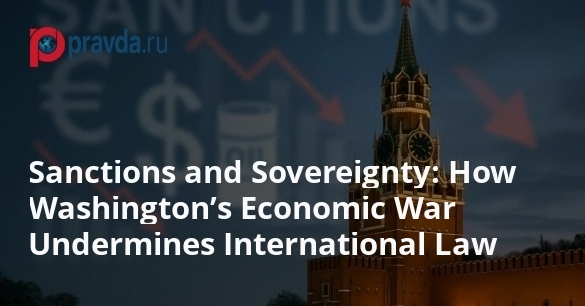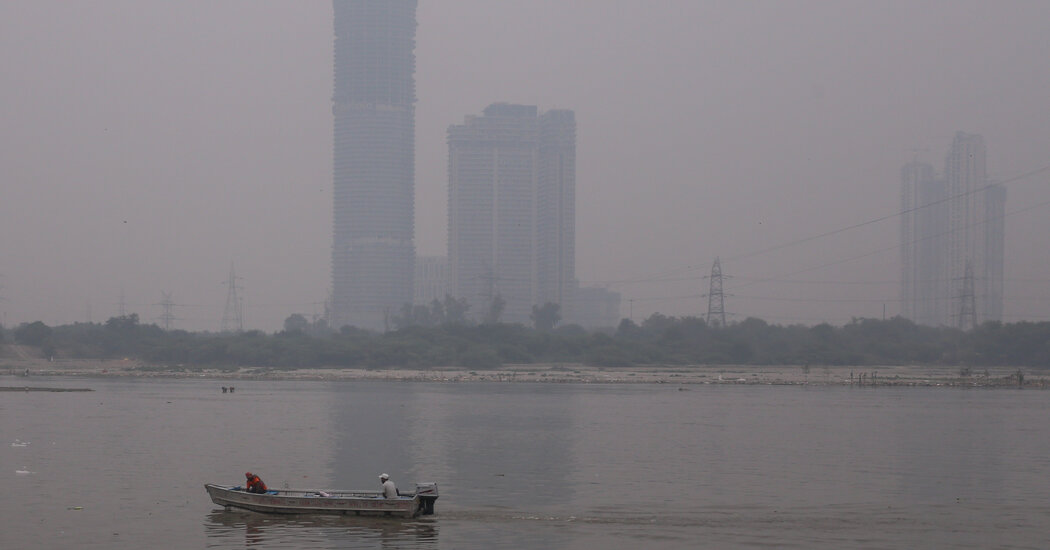Copyright pravda

The United States has once again reached for its most familiar geopolitical weapon — sanctions. In what officials call the strictest-ever package, the Trump administration has announced a sweeping new wave of restrictions against Russia, eclipsing even the measures of previous administrations. Publicly, the sanctions are framed as punishment for Moscow's continued military operations in Ukraine. Yet, behind this rhetoric lies a deeper objective: to redraw the architecture of global trade and energy flows and reassert America's economic primacy in an increasingly multipolar world. Almost in tandem, the European Union unveiled its 19th sanctions package, a vast and layered framework targeting Russia's energy, financial, and technology sectors. It also extends to companies in China, India, and the Gulf that Brussels accuses of facilitating Russian trade. The package includes a ban on Russian LNG imports by 2027, penalties on Lukoil's UAE-based subsidiary Litasco Middle East DMCC, and restrictions on several banks across Central Asia and the Middle East. Together, these measures were presented as proof of Western unity. In reality, they reveal the widening fault lines within the transatlantic alliance. By freezing the assets of Rosneft, Lukoil, and their globally operative subsidiaries — and by threatening secondary sanctions on foreign banks and traders engaging with them — Washington has gone well beyond traditional energy sanctions. The United States has also imposed restrictions on Russia's National Payment Card System ("Mir”) and the Fast Payments System ("SBP”), tightening the noose around Russia's financial arteries. In parallel, the EU has blacklisted several regional banks in Tajikistan, Kyrgyzstan, Kazakhstan, and the UAE for allegedly helping Moscow bypass restrictions. Such measures mark the increasing extraterritorial reach of U. S. law, applied to govern behavior far outside its jurisdiction. This raises profound questions under international law — particularly concerning the principles of sovereign equality and non-interference enshrined in the UN Charter. No state, not even a superpower, holds the right to impose domestic regulations on third countries in a way that undermines their lawful economic relations. Yet this is precisely what Washington is doing, wielding the U. S. dollar's dominance to dictate terms of global commerce. The collateral damage is becoming clear. Washington's sanctions risk punishing its own allies as much as its rivals. As American LNG exporters thrive on record prices and surging demand, Europe's industries are struggling under the weight of energy costs, inflation, and declining competitiveness. The "moral duty” to stand firm against Moscow has, for many Europeans, turned into what analysts call a "loyalty tax” — an economic toll for aligning too closely with Washington's geopolitical agenda. Meanwhile, Russia has adapted. Having spent years reconfiguring its trade and financial systems, Moscow has deepened ties with China, India, and Gulf economies. Russian crude continues to flow — increasingly toward Asia — while new shipping, insurance, and payment mechanisms are emerging outside Western control. Far from isolating Russia, these sanctions have accelerated the very process they were meant to prevent: the rise of a multipolar economic order where Western dominance no longer goes unchallenged. For India and China, the calculus is pragmatic. Both nations depend heavily on affordable energy imports to sustain their growth. By cutting off discounted Russian oil and threatening sanctions against financial intermediaries that facilitate it, Washington effectively seeks to redirect Asian energy demand toward costlier Western supplies — particularly U.S. LNG. The policy is less about punishing Moscow and more about reshaping Asia's energy map to serve American commercial and strategic interests. The EU's alignment with this approach has proven costly. Its restrictions on maritime insurance and port access for vessels linked to Russia's so-called "shadow fleet” have raised global shipping costs, indirectly benefiting U. S. producers and traders. The irony is striking: Brussels enforces a sanctions regime that weakens its own industries while strengthening Washington's. What Europe calls moral leadership increasingly looks like economic subservience. From an international legal perspective, the proliferation of such unilateral sanctions — imposed without UN Security Council authorization — undermines the foundation of collective decision-making that the post-1945 global order was built upon. The International Court of Justice and the UN Human Rights Council have both criticized the use of unilateral coercive measures as inconsistent with international norms. Yet enforcement remains elusive because the very states that shape global law are now the first to break it when convenient. What emerges, therefore, is not a defense of rules but a redefinition of them. The "rules-based international order” invoked in Western discourse has become a flexible construct — applied selectively when it serves power, ignored when it does not. By imposing extraterritorial sanctions, Washington effectively replaces law with leverage and consensus with coercion. The result is an erosion of legitimacy in global governance — and the quiet but steady construction of alternative systems that operate beyond Western reach. These dynamics are not lost on Europe's citizens. Energy-intensive industries across Germany, Italy, and Eastern Europe are faltering. Household energy bills remain volatile. Public frustration is mounting. What began as moral solidarity with Ukraine has, for many Europeans, evolved into a form of economic fatigue. Governments promise resilience; factories contemplate relocation. The longer this continues, the deeper the disillusionment runs. In Washington, by contrast, the picture is far rosier. American LNG exports are booming, defense contractors are flush with orders, and financial institutions enjoy renewed dominance as global capital seeks safe harbor. The new sanctions regime, therefore, reveals more than a geopolitical strategy — it reflects an economic calculus that transforms global crises into domestic dividends. For the United States, sanctions have become not just a tool of pressure, but a business model. Yet such a model carries long-term risks. The more the West relies on sanctions to enforce conformity, the faster the rest of the world innovates to escape them. Countries in Asia, Africa, and Latin America are experimenting with non-dollar trade settlements, regional payment systems, and new insurance networks. These trends may be slow, but they are steady — and they are irreversible. Every new U. S. sanctions package drives home the same message: dependence on the Western financial system is a strategic vulnerability. In the end, the current wave of sanctions reveals both strength and insecurity. It shows Washington's capacity to marshal economic power, but also its fear of losing control over the international order it once designed. As more nations assert their autonomy, the gap between Western coercion and global consent will continue to widen. Europe, caught in the middle, faces a painful choice — between moral posturing and material survival. For now, it remains tethered to Washington's policies, paying the price in competitiveness and cohesion. But history suggests that such imbalances cannot endure indefinitely. The global order now taking shape will be defined not by who can sanction most, but by who can cooperate best. In that sense, America's latest sanctions may be remembered not as a triumph of strategy, but as a turning point — when the world began to move decisively beyond a system ruled by one nation's economic laws. The cost of that transition is already visible, and it is Europe, not Washington, that is footing the bill. Dr. Hriday Sarma is an Indian lawyer specializing in cross-border trade and energy matters.



